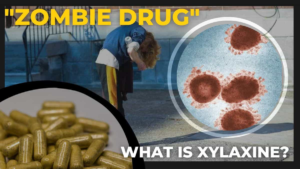
Xylazine is a veterinary sedative drug that is commonly used to immobilize animals such as horses, cows, and deer. However, in recent years, Xylazine has become a popular drug of abuse, particularly among individuals who abuse opioids. This trend has raised serious concerns among healthcare professionals, law enforcement agencies, and the general public, as Xylazine addiction can have devastating consequences on individuals and society as a whole.
Xylazine is a potent sedative that is similar in nature to drugs like Ketamine and PCP. It produces a dissociative effect, which means that users feel detached from reality and may experience hallucinations, delusions, and a loss of sense of self. When taken in high doses, Xylazine can cause respiratory depression, coma, and even death. Xylazine is not approved for human use in the United States, and as such, there is no established safe dosage for humans.
Despite the dangers associated with Xylazine, its abuse has become widespread in recent years. In particular, individuals who abuse opioids have been found to use Xylazine to enhance the effects of their drugs. This is because Xylazine can produce a similar euphoric high to opioids and can also reduce opioid withdrawal symptoms. However, Xylazine is much cheaper and easier to obtain than opioids, making it an attractive alternative for those who struggle with opioid addiction.
Xylazine addiction can have severe consequences on both physical and mental health. Chronic use of the drug can lead to a range of health problems, including respiratory depression, heart failure, and organ damage. Xylazine abuse can also lead to psychological problems, such as depression, anxiety, and paranoia. Additionally, Xylazine addiction can lead to social and economic problems, including job loss, financial instability, and legal issues.
Treatment for Xylazine addiction typically involves a combination of behavioral therapy and medication-assisted treatment. Behavioral therapy can help individuals identify and address the underlying issues that led to their addiction, while medication-assisted treatment can help manage withdrawal symptoms and reduce the risk of relapse. In severe cases, inpatient treatment may be necessary to ensure that individuals receive the care and support they need to recover from their addiction.
In nutshell, Xylazine addiction is a growing problem that can have serious consequences for individuals and society as a whole. The drug’s potent sedative effects and potential for abuse make it a dangerous substance to use. If you or someone you know is struggling with Xylazine addiction, it is important to seek professional help as soon as possible. With the right treatment and support, individuals can overcome their addiction and reclaim their health and wellbeing.
“Struggling with addiction? We can help. Contact us now for a confidential consultation.”
